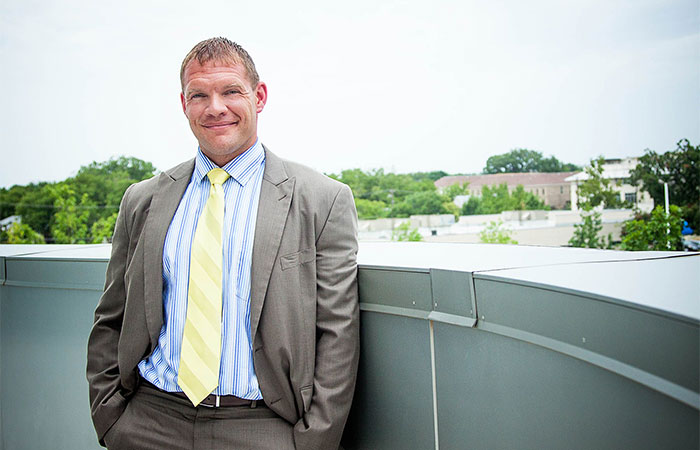A precision medicine approach to Alzheimer’s disease
By Jan Jarvis
Can an anti-inflammatory drug commonly used for headaches possibly treat or prevent Alzheimer’s disease?
The answer might depend on who’s taking the drug, according to Sid O’Bryant, PhD, Professor in the Center for Alzheimer’s and Neurodegenerative Disease Research at UNT Health Science Center.
There’s substantial evidence that non-steroidal anti-inflammatory drugs (NSAID) have a role in helping brain function, but research at UNTHSC suggests this is only for specific patient subgroups, said O’Bryant. He recently received a $3.5 million grant from the National Institute on Aging to study the use of anti-inflammatory drugs in treating specific subgroups of patients with Alzheimer’s disease.
“We know that inflammation is a huge deal in some, but not all patients,” he said. “With this project, we’ll be able to tell if an NSAID such as naproxen can be used to treat specific patients with Alzheimer’s or even possibly reduce the risk of the disease in some people over time.”
For the study, blood samples from approximately 10,000 patients who have completed clinical trials for treating and preventing Alzheimer’s disease will be examined. It is the first study to test the theory that there are subtypes of patients who benefit from specific drugs, he said. This study looks at those with high inflammation, which is about 20 percent of patients with Alzheimer’s.
“For those 20 percent with high inflammation, the anti-inflammatory drugs should help,” he said. “But for the 20 percent with low inflammation the drugs might not help at all or could make things worse.”
Although prior studies using drugs such as Aleve and Vioxx showed no clear effect on the disease, this study will examine blood samples from those trials to determine if the drugs worked for specific patients. If successful, this precision medicine approach will be expanded to look at different types of drugs that may be of benefit to different subgroups of patients.
Dr. O’Bryant’ s research focuses on specific subgroups of patients rather than trying to find a single miracle drug that cures everyone with Alzheimer’s disease. Previous trials have not been successful, but that was because they tried to treat everyone the same, he said.
“Most trials fail,” Dr. O’Bryant said. “But in reality, they didn’t fail. We just didn’t know who they worked for.
“I believe within five years this work is going to really change the field.”







Social media